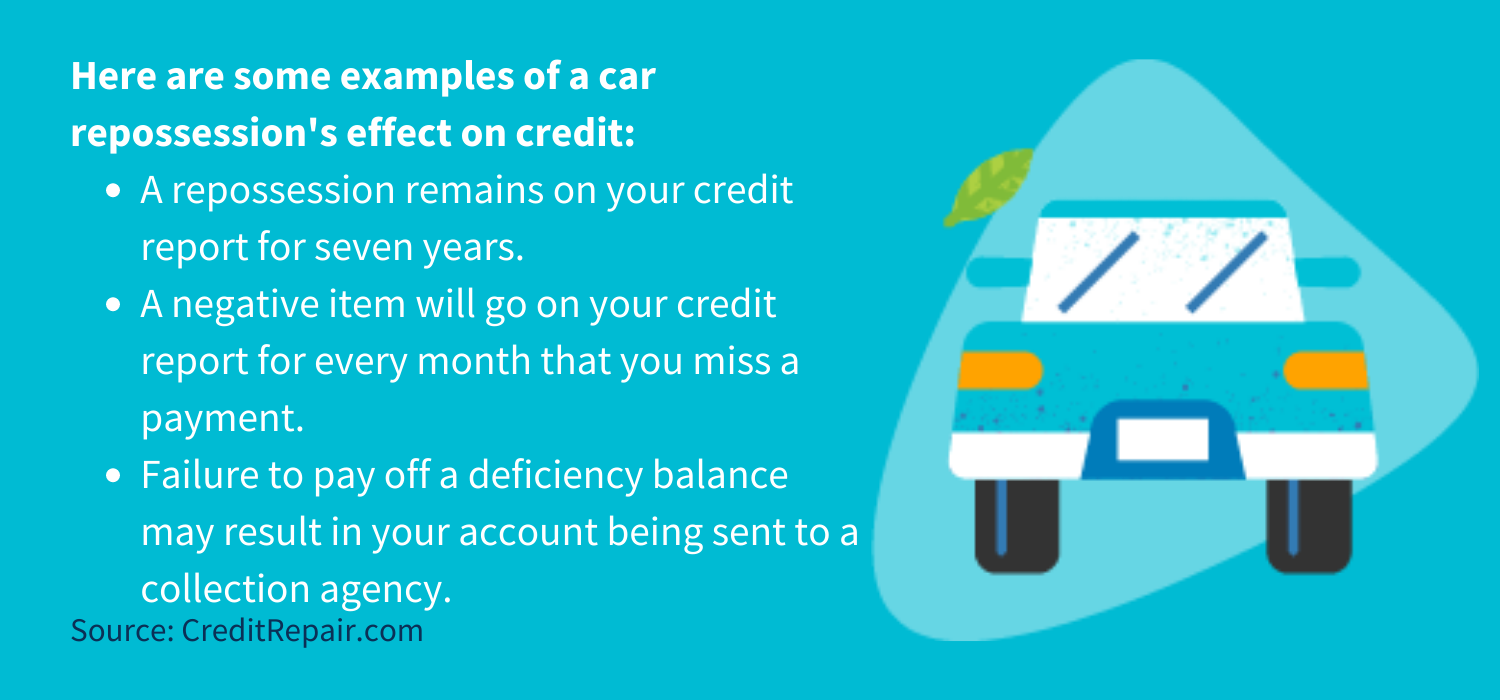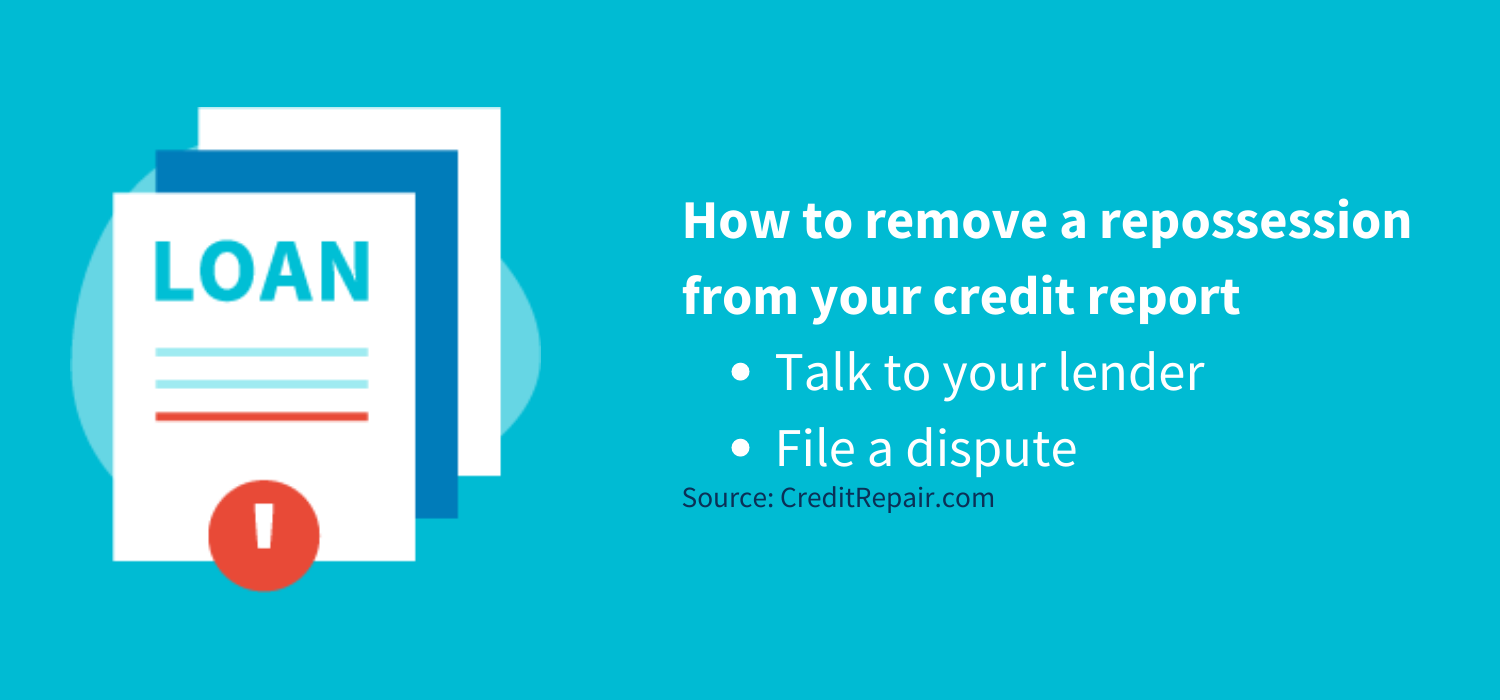
Disclosure regarding our editorial content standards.
Financially, it’s been tough for folks the past two and a half years. The pandemic and inflation have impacted the bottom line for almost everyone, and many people are unable to pay all their bills.
It can be especially difficult if you can’t make your car payments. If you fall too far behind, your lender can repossess your car. A car repossession can affect your credit score severely and remain on your credit history for up to seven years.
What is auto repossession?
When you get a car loan, the lender secures that loan by using the car as collateral—the lender holds the title to the car until you’ve paid off your loan. If you don’t make your payments on time, the lender can repossess it.
Your loan contract details the conditions that lead to default. However, most lenders won’t start the repossession process until 30 to 60 days after you’ve missed your last payment. Each state has laws about repossession. To learn which laws govern repossession in your state, check with your attorney general’s office.
If your lender wants to repossess your car, many states require them to notify you in advance. Also, the repo person who comes to seize your vehicle may not use physical force, damage your property or enter your garage without permission.
If you leave any personal property in the car, you’re entitled to get it back. (If you’re having problems with payments and think a repossession might be imminent, it’s a good idea to list all your personal property in the car.)
The costs of auto repossession
There are tangible and intangible costs related to having an automobile repossessed. The tangible costs include towing, storage and legal fees connected to the repossession.
If the lender sells your car in a public or private auction to recoup the costs and the car sells for less than what you owe, you’re still required to pay the remainder of the loan and any remaining expenses. This is known as a deficiency.
The intangible costs include the embarrassment of explaining to your employer that you can no longer use your vehicle to get to work. It’s also much more challenging to get another car loan after repossession, even for one that’s less expensive.
How does auto repossession affect your credit?

Here are some examples of a car repossession’s effect on credit:
- A repossession remains on your credit report for seven years.
- When you default on a loan, it creates a negative item on your credit report.
- A negative item will go on your credit report for every month that you miss a payment.
- Failure to pay off a deficiency balance may result in your account being sent to a collection agency, which also will generate an item on your credit report.
The next time you apply for a new credit card or loan, that lender will look at your credit report and see the repossession. This could make it much more difficult to secure new credit. Therefore, you need to stay on top of your credit and check it regularly, even if your car is repossessed
Voluntary repossession vs. involuntary repossession
If you’re late on your loan payments, your automobile can be repossessed in two ways: voluntary repossession and involuntary repossession.
Involuntary repossession is the kind most often seen in TV shows and movies. A repo crew comes to a house or place of business and takes away a car. The owner is liable for all towing, storage and associated fees.
With voluntary repossession, the owner surrenders the car to the lender. This way, you may win goodwill from the lender.
However, both repossession types have the same effect on the owner’s credit.
What to do if you’re in danger of repossession
If you suspect you’ll have trouble making your car payments, contact your lender immediately. Your lender would rather work with you to find a solution than start the repossession process. After all, they’ll make more money if you continue making your payments than if they take away your car.
Many lenders will let you go a month or two without making a payment if you explain your situation ahead of time. If making a payment is still difficult, talk to your lender about renegotiating your terms. You then may have a smaller payment over a more extended period.
If you renegotiate your loan terms, be sure you get a written agreement that spells out these changes. Verbal agreements are not good enough. You want something in writing that will protect you if your lender violates your new contract.
You can also consider refinancing the loan or selling the car yourself. You might make more that way than at a lender’s auction, which means a smaller deficiency to pay.
How to get your car back after repossession
If your car has been repossessed, there are several ways to get it back:
Reinstate the loan
You can make the loan current again by fulfilling any missed payments and costs associated with the repossession. The lender can tell you how much is due and will give you a timeline to pay, usually 10 to 20 days after repossession.
Buy your car at auction
If you succeed in repurchasing your car at a public auction, remember you’ll still need to pay the deficiency. Car auctions accept only cash. Therefore, you’ll need to consider whether you can gather enough cash to buy back your car.
Pay off your loan
After your car has been repossessed, your lender may let you pay off the total amount you owe. This includes past due payments, the remaining balance and any associated fees. You won’t have monthly payments, but you’ll still need to maintain and insure the car.
How to fix your credit after a repossession
If your car has been repossessed and you know your credit score has been affected, you can take steps to begin rebuilding your credit immediately:
- Make regular payments on other loans or bills you owe.
- Don’t apply for any new loans or credit cards.
- If allowed in your state, add a statement to your credit report that explains why your car was repossessed—for instance, you had just lost your job or a relative became very sick and you were unable to make those payments. It won’t remove the repossession notice, but it could help if you need a loan or credit card from other lenders.
- Talk to a credit or financial counselor who can help you manage your debt.
- Regularly review your credit reports and look for any errors that may negatively affect you.
How to remove a repossession from your credit report

Considering the negative impact a bad credit score can have on your future, you should investigate ways you can remove it from your credit report:
Talk to your lender
Remember, it’s more convenient for your lender if you can find a way to pay off your debt. Occasionally they’ll even offer a settlement so you can pay less than what’s owed. You then can ask the lender to remove the repossession from your credit score. If they agree, make sure you get it in writing.
File a dispute
Check your credit reports to see how the lender reported the repossession. If there are inaccuracies, including incorrect dates or misreported amounts, you can file a dispute.
You’ll need evidence to support your claim. Once you report these errors, the credit bureaus must investigate within 30 to 45 days and report all results.
If your lender made a mistake or used fraudulent methods to repossess your car, CreditRepair.com can help you file a dispute and get your credit back on track.
Note: The information provided on CreditRepair.com does not, and is not intended to, act as legal, financial or credit advice; instead, it is for general informational purposes only.
Questions about credit repair?
Chat with an expert: 1-800-255-0263






